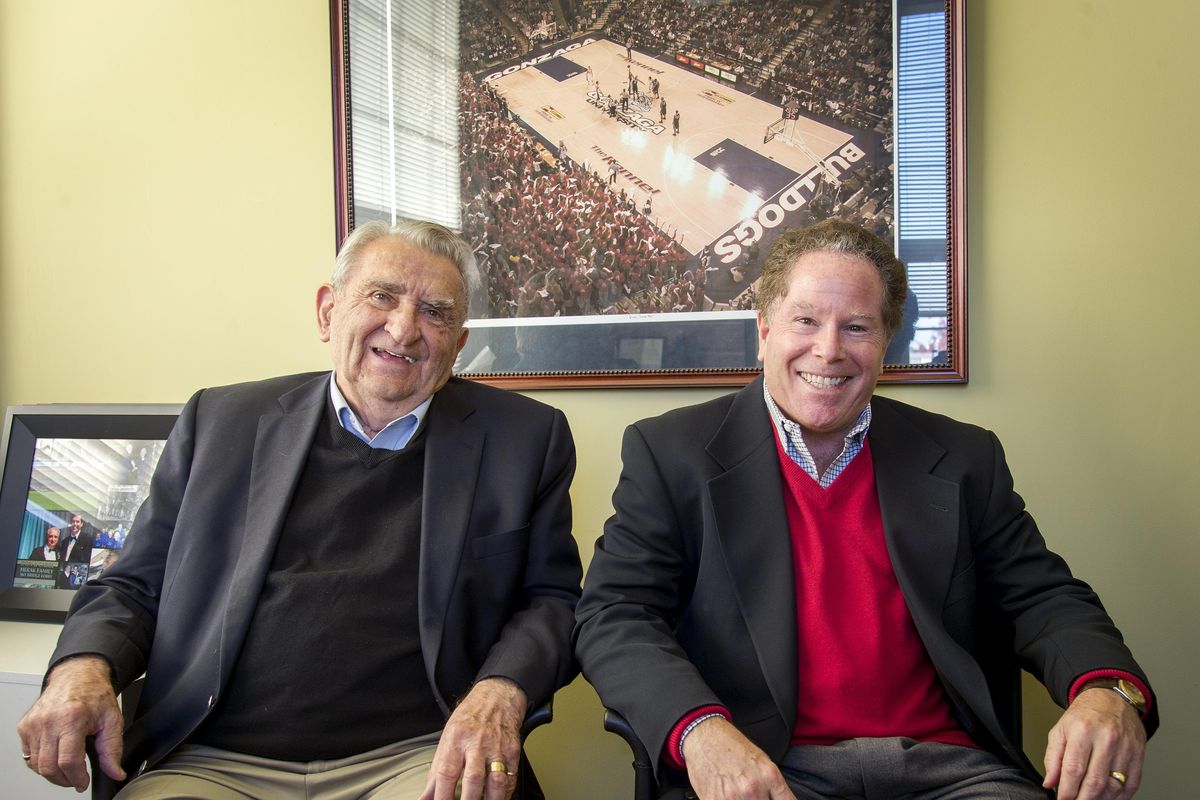Don Herak left a legacy of Gonzaga giving

Donald Herak, a concrete tycoon and longtime Gonzaga University trustee who became one of the school’s most prolific donors, died Friday. He was 94.
Friends said Herak died of natural causes after several days at Providence Sacred Heart Medical Center. They described him as a determined man eager to give his time, energy and wealth almost anywhere he saw a need.
“He was devout, and he was faithful, but where his faith really lived was in his heart,” said Gonzaga President Thayne McCulloh, who worked with Herak for more than two decades. “He really did believe that he wouldn’t be doing the right thing if he just amassed wealth for its own sake. He felt like that had to be deployed for a reason.”
McCulloh said it was hard to count all the projects that Herak, a Gonzaga alumnus and longtime owner of Acme Concrete Co., had undertaken to make the university a better place. Herak and his late wife, Carol, sat on numerous boards and committees and contributed to faculty endowments, scholarship funds, teaching programs and building projects.
Don Herak served on Gonzaga’s board of regents in the 1970s, and in 1984 he was elected to the board of trustees, where he served for more than three decades. Most recently he was not a voting member, but until about a year ago he “religiously” attended every board meeting, McCulloh said.
Many of Herak’s philanthropic efforts went “under the radar” because he did not seek credit for them, said McCulloh, who interviewed Herak about his life in 2004, when Gonzaga bestowed him with an honorary doctorate.
In 1988, the Heraks pitched in $1 million for an expansion and renovation of Dillon Hall, which was soon after renamed the Don and Carol Herak Center for Engineering.
McCulloh said Don Herak also played a key role in Gonzaga’s decision to build the 6,000-seat McCarthey Athletic Center in 2003. VIP fans now watch basketball games from the center’s Herak Club Room. And outside before big games, students camp in “tent cities” on the Herak Lawn.
Gonzaga’s athletic director, Mike Roth, said Herak was “instrumental” in facilitating the Zags’ 20-year run of NCAA Tournament appearances. Roth said he often told Herak: “None of this would have happened, Don, without you.”
Don and Carol Herak were also longtime sponsors of the Spokane Symphony. And he served as chairman of the Nazareth Guild, a foundation set up to help low-income students attend Catholic schools in Spokane.
Rob McCann, the director of the House of Charity, said Don Herak had “a heart for the poor and vulnerable” and made sizable donations to Catholic Charities to assist the downtown homeless shelter. Two years ago, Herak was awarded a Bishop’s Medal, which McCann called “the highest award given anywhere in the diocese.”
“Don was all about outcomes. He didn’t want to hear about prayers or dreams or hopes. He wanted to see bricks and mortar and solutions,” said McCann, who visited Herak at his bedside in the hospital last week. “Even in his last hours of life, the only thing he wanted me to tell him about was what we were doing for housing the homeless.”
Still, as a “self-made man,” Herak sometimes questioned why more homeless people didn’t “get their lives in order and pull themselves up by their bootstraps,” McCann said.
“He always had a tough time understanding why there were so many poor people in Spokane that were struggling,” McCann said. “But he would go down to the House of Charity and spend time down there and then realize, you know, these are people struggling with diseases and illnesses, and they need compassion, and they need the security of a place to stay.”
Don Herak grew up on a farm and attended public schools in Charlo, Montana, but he spent much of his time with the Jesuit community in the nearby town of St. Ignatius. According to McCulloh, this upbringing shaped Herak’s philosophy on giving back.
In high school, Herak was president of his class and a member the varsity basketball squad. He married his sweetheart, Carol Lacy, in 1944 and graduated from Gonzaga two years later with a degree in engineering. After a stint working for the U.S. Bureau of Reclamation in Montana, the couple moved back to Spokane, and in 1956 he became a manager for Acme Concrete.
In 1960, he became president of the company, and within a few years, he had bought it. Under his leadership, the company grew into a major supplier of concrete for the region, helping build dams, highways, bridges and buildings.
Carol Herak died in 1998, and the couple’s daughter, Toni Robideaux, died of cancer in 2004.
McCann said Don Herak had “been through a lot of trials in his life, and he always maintained a level of dignity and compassion for others that was truly incredible.”
Herak is survived by two children, Donna and Jerry, as well as grandchildren and great-grandchildren.
A viewing and rosary are scheduled March 19 at Hennessey Funeral Home, followed by a funeral March 20 at Cathedral of Our Lady of Lourdes and a reception in the third-floor ballroom of Gonzaga’s Hemmingson Center.
Correction: This story was changed on March 19, 2018. A previous version misspelled Carol Herak’s maiden name and misstated where Don and Carol Herak’s grandchildren currently live.